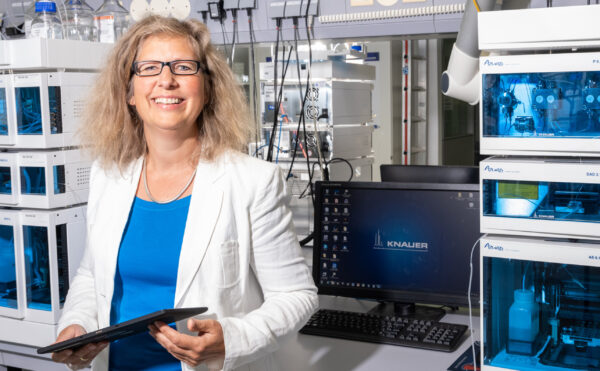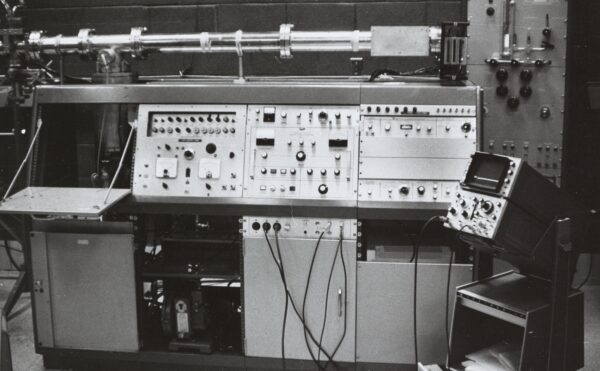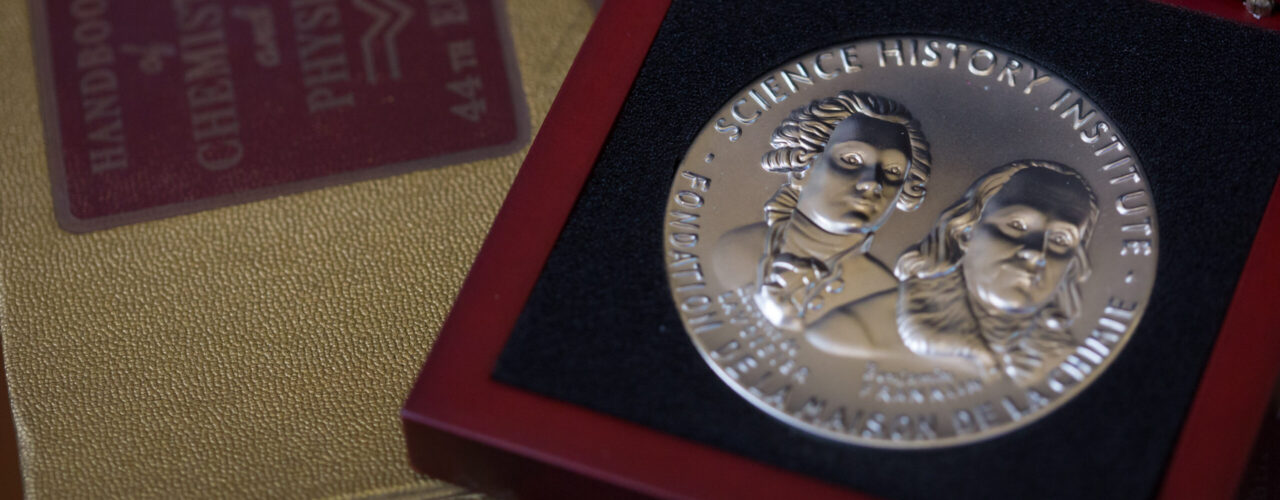
Science History Institute and Fondation de la Maison de la Chimie Name Bernadette Bensaude-Vincent Winner of 2024 Franklin-Lavoisier Prize
The French philosopher and historian will be honored for her contributions to the history and philosophy of chemistry on November 6 in Paris.
The Science History Institute and the Paris-based Fondation de la Maison de la Chimie announce Bernadette Bensaude-Vincent as the winner of the 2024 Franklin-Lavoisier Prize. The French philosopher and historian of science is being recognized for her remarkable contributions to the history and philosophy of chemistry and the relationship between science and society. She will receive the specially cast silver medal at a ceremony in Paris on November 6 that will also include the presentation of the first-ever honorary Franklin-Lavoisier Prize to scientist Armand Lattes for his work in the chemical heritage industry.
Presented jointly every two years, this prestigious award recognizes outstanding work in the history and heritage of chemical science and technology, as well as efforts in the preservation or promotion of the entwined scientific culture of France and the United States.
About Bernadette Bensaude-Vincent
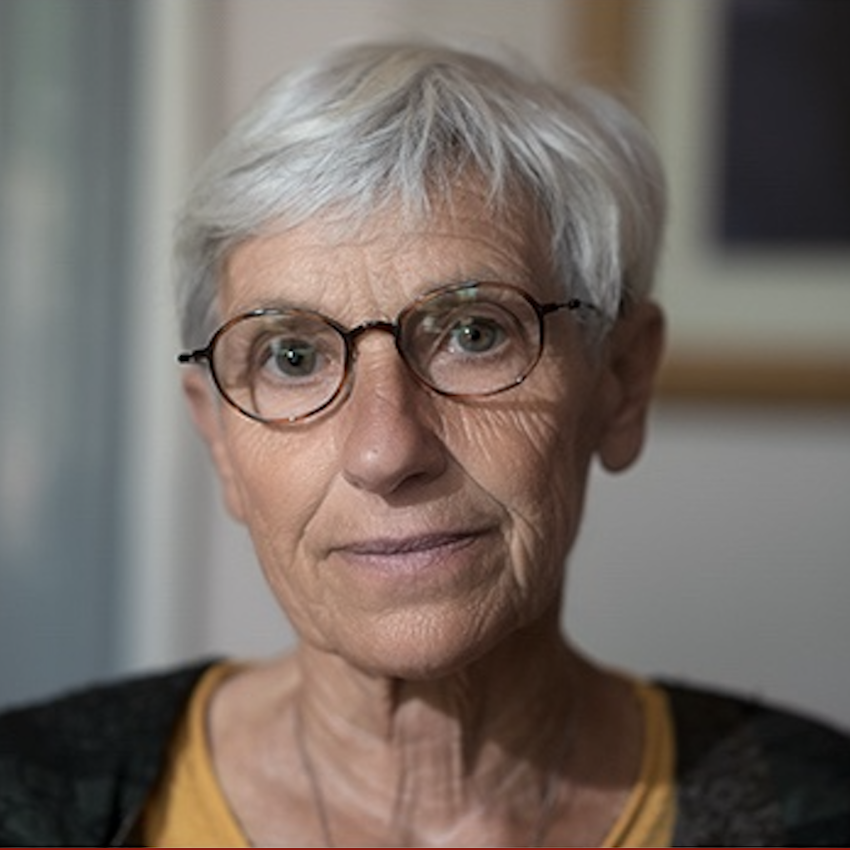
Bernadette Bensaude-Vincent is Professor Emeritus at the University of Paris Panthéon-Sorbonne. Her work focuses on the science of matter and materials in particular, and on the understanding of chemistry more broadly and its intellectual, cultural, and societal connections. Her diverse themes have inspired innovative research, both outside of France and beyond the history and philosophy of chemistry field.
Bensaude-Vincent is the author of more than 100 articles and books, including Histoire de la chimie (1993) and its English translation A History of Chemistry (1996); Lavoisier, Mémoires d’une révolution (1993); Éloge du mixte. Matériaux nouveaux et philosophie ancienne (1998); Se libérer de la matière? Fantasmes autour des nouvelles technologies (2004); Faut-il avoir peur de la chimie? (2005); Matière à penser. Essais d’histoire et de philosophie de la chimie (2008); and most recently Les Sciences dans la mêlée. Pour une culture de la défiance (2023).
In addition to being a member of the French National Academy of Technologies, her work has received numerous awards, including the Prix Jean Rostand Prize from the Académie des Sciences in 1994, the Dexter Award for Outstanding Achievements in the History of Chemistry from the American Chemical Society in 1997, the Marc-Auguste Pictet Medal from the Société de physique et d’histoire naturelle de Genève in 2010, and the George-Sarton Medal from the History of Science Society in 2021. Bensaude-Vincent was also a senior fellow at MIT’s Dibner Institute for the History of Science and Technology.
About Armand Lattes
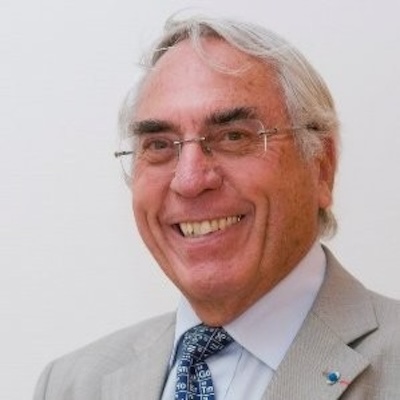
Armand Lattes is Professor Emeritus at Paul Sabatier University in the Academy of Toulouse in France. He has made profound contributions to the history of chemistry in general and to the great chemists who worked in Toulouse and Southern France in particular. He has been committed to supporting research in chemical history and heritage throughout his entire career.
Lattes has received numerous awards and honors, including the Grammatikakis-Neumann Prize of the Académie des Sciences, the Achille-Le-Bel Grand Prize from the French Chemical Society, the Copernicus Medal from the Polish Academy of Sciences, and the Van’t Hoff Prize from the Chemical Society of the Netherlands.
He served as president of the Société Chimique de France and the Société de Chimie industrielle; is a member of the l’Académie nationale de pharmacie and l’Académie européenne des sciences des arts et des lettres; and a corresponding member of the Spanish Academy of Sciences.
About the Franklin-Lavoisier Prize
Named for Antoine-Laurent Lavoisier and Benjamin Franklin, two of the 18th century’s greatest minds, the Franklin-Lavoisier Prize recognizes unusually meritorious efforts in the preservation or promotion of the entwined scientific heritage of France and the United States. Accompanied by a monetary award of €15,000, the prize is awarded alternately in the United States and France every two years.
The Franklin-Lavoisier Prize acknowledges commendable work in the preservation and highlighting of any aspect of our common scientific or industrial heritage in the fields of chemistry and its related applications, the promotion of the history of the chemical and molecular sciences and industries, or the fostering of closer Franco-American ties and the promotion of significant activities in the chemical sciences or industries. Cosponsored by the Fondation de la Maison de la Chimie and the Science History Institute, the two organizations seek to promote public understanding of Franco-American relations in modern and historical science, industry, and economics.
About the Fondation de la Maison de la Chimie
The Fondation de la Maison de la Chimie was founded in 1928 in Paris with the goal of building and maintaining a central meeting and working space to promote the popularization of science for chemists worldwide. To fulfill this mission, the organization provides several services and activities to facilitate cooperation among all those working to promote chemistry as one of the basic disciplines of science and technology.
More News
Science History Institute, Pittsburgh Conference to Present Pittcon Heritage Award to Alexandra Knauer
The CEO and owner of lab instrument manufacturer KNAUER will be honored at the 2026 conference in San Antonio on March 8.
LyondellBasell’s Bob Patel Named 2026 Petrochemical Heritage Award Honoree
The prestigious award will be presented by the Science History Institute and the Founders Club on March 28 during AFPM’s International Petrochemical Conference in San Antonio.
Melissa Sherman Joins Science History Institute’s Board of Directors
The MOBILion Systems founding CEO will help support the Institute’s mission and strengthen our relationships in the life sciences industry.

